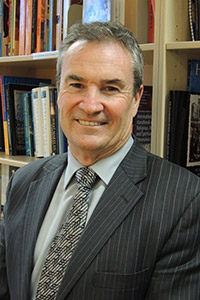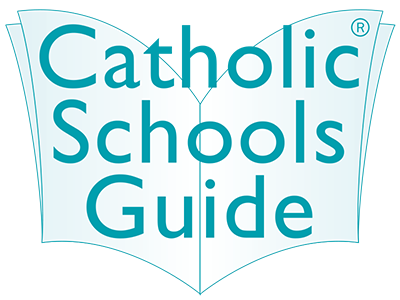News and Media

Achieving Excellence by Dr Tony Bracken
The Catholic Secondary College draws on the Catholic tradition and a unique founding charism or mission to be a place of learning for students in the important adolescent years, contributing to their growth as whole persons, opening up possibilities for fullness of life (John 10:10).
As a place of learning and possibility then, what indicators would a school team look for as evidence that what it offers its students is unusually good, that it is ‘achieving excellence’?
Developing indicators of excellence requires a much more nuanced appreciation of all facets of learning in a Catholic Secondary College than what often counts as the only measure of ‘excellence’- the academic achievement scores of its graduating students. Achievement in final year examinations is, of course, one important and very public indicator of educational success and Catholic Secondary Colleges have consistently demonstrated a capacity for optimising the academic potential of students. It is the stories behind these learning achievements, and the myriad of unreported improvements in student learning and growth across the rich life of a Catholic Secondary College, that are more accurate indicators of a school’s claim to achieving excellence.
A more meaningful indicator of excellence that a Catholic Secondary College may use is the learning gain of its students with reference to defined starting points and specific targets. This ‘value add’ perspective can be applied to areas in the life of the school where valued student outcomes have been articulated and promoted as part of the unique vision of the school, including extra curricula opportunities for student learning and personal growth.
All Catholic Secondary Colleges will have clearly stated intentions in relation to core areas of mission and learning and teaching. In the area of Catholic mission, a ‘value add’ perspective might invite the question: what valued outcomes do we want our graduating students to achieve as a consequence of their participation in the Catholic life of this school and what indicators will we identify as milestones toward these outcomes? To make progress on valued outcomes, however, requires significant involvement and commitment of teachers to these outcomes. Leaders inquire thoughtfully into the capacity of teachers to facilitate the outcomes for students and develop plans to support teacher development in this area. Catholic Secondary Colleges place priority on the formation of staff often focused around the mission of the school, or the charism of the founding congregation, as expressions of a Gospel way of living applied to the contemporary context.
Describing indicators of mission outcomes is challenging, however, because it involves the affective domain of student growth. Despite the challenge, developing fluency in setting and monitoring mission outcomes for students is a vital undertaking because it makes explicit the core intent of a Catholic school. Priority can then be given to purposeful learning experiences directed toward the outcomes. Reporting on this progress to the school community and other stakeholders then becomes meaningful, where claims of ‘achieving excellence’ are validated through reliable indicators and milestones.
Indicators of achievement are more easily defined in areas of learning and teaching, including areas specified by the Australian Curriculum, in NSW. Using student data, a school may identify a learning challenge for particular cohorts of students or all the students in a school, such as improved capability in problem solving or greater appreciation of a cross curriculum perspective such as sustainability. Outcomes relevant to all areas of the curriculum, such as literacy, are often a focus for whole school improvement. For example, below expectation achievement data in an area of literacy may lead to a strategic goal over a three-year period to raise the literacy levels of all students in, for example, written expression. The school would then set annual student learning targets and quality indicators of ‘written expression’ relevant to each year cohort.
In the same way that making progress on valued student outcomes in the area of mission is challenging, engaging in continuous school improvement in an area of learning and teaching is also difficult since it requires of teachers the capacity and motivation to align aspects of their teaching practices to the strategic goal: in this case, ‘written expression’. Identifying where teacher learning is needed is a critical step.
When teachers inquire into and understand the literacy learning needs of individual students within their subject-based class, when ‘faces are put on achievement data’, teachers are more motivated to engage in their own learning to develop literacy practices that address these students’ needs within their own discipline area. They become as interested in the learning pathway for individual students as they are in the content of the lesson. Where the collective effort of teachers’ results in targeted learning gain for all students – including those with learning difficulties and high achievers – a school could validly claim it was ‘achieving excellence’.
‘Putting faces on the data’ is appropriate in any educational setting and fully consistent with the broader Catholic belief in the dignity and worth of each person, made in the image and likeness of God. Knowledge of individual learners and their learning progression, therefore, is a critical dimension of the academic and pastoral care provided to students in the Catholic Secondary College. A final indicator of ‘achieving excellence’ might be the extent to which, organisationally, the Catholic Secondary College orients its pastoral and academic structures toward the learning pathway of every student during their secondary years.
‘Excellence’ is an over-used buzzword often applied without substance or validation, and when applied to education is done so in a narrow way to final scores, without reference to starting points. This reflection has proposed that a more meaningful way of expressing what is ‘unusually good’ or ‘excellent’ is the extent to which the Catholic Secondary College adds value through the collective effort of committed professionals working toward valued student outcomes.

Dr Tony Bracken’s current role is Assistant Director, School Improvement at the Catholic Schools Office, Broken Bay Diocese, NSW, a role that includes oversight of a current system-wide focus on leading learning and school improvement activity across the systemic schools. Tony’s prior professional experience includes a senior role in professional learning, learning services, formation and leadership development at the Catholic Education Office, Parramatta and earlier, six years as a secondary principal and two acting principal roles.
Tony’s doctoral research focused on the principal’s leadership role in the spiritual formation of teachers. Tony was one of the founding members of the spiritual formation network – a growing national network of educators engaged in spiritual formation.
Tony presents at national and international conferences, seminars and workshops.

